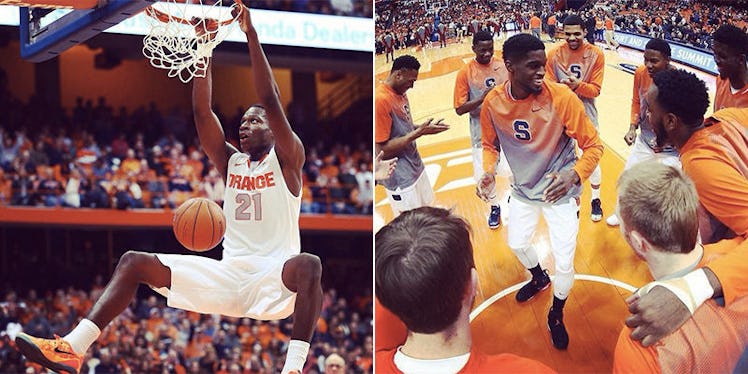As the quiet sports month of February goes on and March nears, sports fans of all kinds are counting down the days until March Madness begins.
Arguably the most exciting month in sports, college campuses are gearing up for their teams to hopefully make a deep run in both their conferences and, more importantly, the NCAA tournaments.
Syracuse University is no exception to this, as the recent run of success the Orangemen have been on in the last six years can be a considered a golden era for 'Cuse ball.
However, this year has been a different story for the Orange. They've lost top player CJ Fair to graduation, as well as Tyler Ennis and Jerami Grant to the NBA draft.
This has left Syracuse with a 2014-15 squad that lacks experience, depth and scoring. With a 15-7 record, no marquee wins to date and a gauntlet of a schedule left against the ACC’s top teams, things aren't looking good.
But, last night, the University's board of directors, new Chancellor and athletic department pulled the proverbial plug, self-imposing a post-season ban for this season.
The ban is due to findings and transgressions that have been revealed in a nearly eight-year investigation conducted by the NCAA into the school’s men’s program, leaving a boom not even a sold-out Carrier Dome could create.
Students on campus are sure to be upset, and rightfully so; knowing their team won’t compete in college sports' biggest event is never something enjoyable.
But, was this a savvy, well-timed move by the University?
With a highly touted recruiting class on the way, as well as many young and talented players returning next year, the Orange will once again be a highly ranked college basketball powerhouse.
And, as the NCAA was wrapping up its investigation and nearing a verdict, the Orange may have actually saved the 2015-16 season by putting the axe in this year's team, which was not going anywhere, anyway.
The best way this can be viewed is essentially as a plea deal, instead of being found guilty and awaiting sentencing from the NCAA, Syracuse took matters into their own hands by admitting fault and most likely lessening the blow that will be delivered by the NCAA.
It is tough to believe the University would make such a drastic move without some sort of assurances from the NCAA that next year's team will not see a similar ban.
And, in that likely scenario Syracuse is allowed to compete, they will almost surely make the NCAA tournament next year, so at that point, is there a difference in the likely outcomes of each season?
March will be a long and quiet month for the Syracuse faithful, but if the NCAA gives the Orange a pass for their initiative and ‘Cuse fans get to be watching a talented team make a deep tournament run in March of 2016, was it all worth it?
